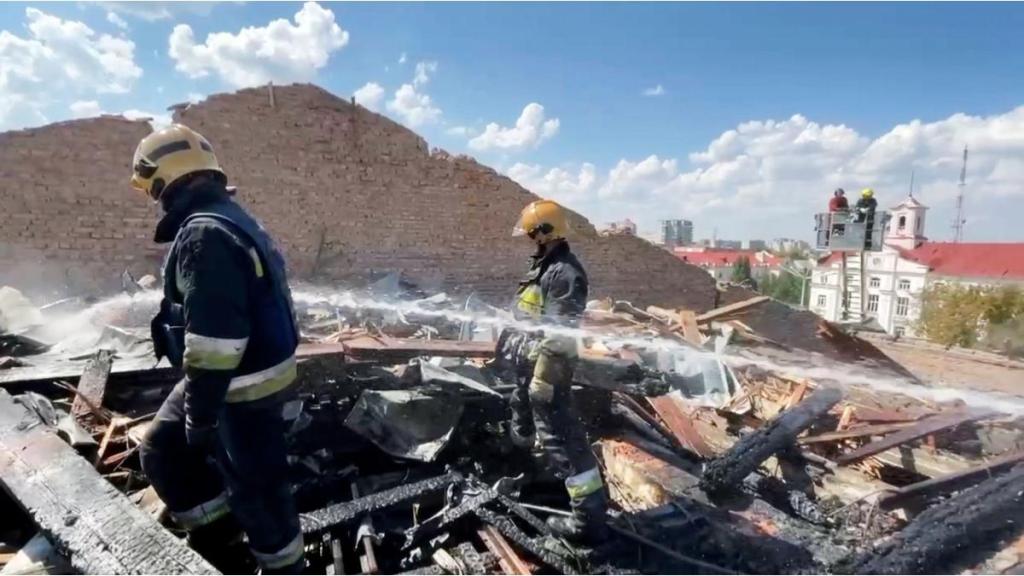The Russian Foreign Ministry has raised alarming concerns regarding the safety of nuclear facilities amidst the ongoing conflict in Ukraine.
According to Maria Zakharova, the Russian Foreign Ministry Spokeswoman, there are credible reports suggesting that the Ukrainian government, referred to as the “Kiev regime,” is planning provocations targeting the Kursk Nuclear Power Plant (NPP). This potential threat has sparked fears of a major man-made disaster that could have catastrophic consequences, not just for Russia, but for the entire European continent.
Alleged Preparations for an Attack
Zakharova’s statement highlights that the Ukrainian authorities have begun preparations for an attack on the Kursk NPP. If these reports are accurate, the consequences could be severe, considering the immense risk associated with any damage to nuclear facilities. The Kursk NPP, like any nuclear power plant, is built with extensive safety measures. However, in the context of military conflict, even the most robust security systems can be overwhelmed, leading to potentially disastrous outcomes.
The Call for International Intervention
In response to these reports, Russia is urging international organizations, particularly the United Nations (UN) and the International Atomic Energy Agency (IAEA), to take immediate action. The Russian government is calling for a swift condemnation of what it describes as provocations by the Ukrainian government. Moscow is stressing the importance of preventing any threat that could compromise the nuclear safety and security of the Kursk NPP.
Zakharova emphasized that any attack on a nuclear facility not only poses a direct threat to the region but also violates the fundamental principles of nuclear safety and security established by the IAEA. The Russian Foreign Ministry’s appeal to the international community underscores the gravity of the situation and the potential for widespread harm.
Undermining Global Nuclear Safety Norms
The potential attack on the Kursk NPP is seen by Russia as a direct challenge to the tenets of nuclear safety as outlined by Rafael Grossi, the head of the IAEA, in 2022. Grossi’s guidelines emphasized the importance of maintaining the integrity of nuclear facilities, especially during conflicts, to prevent any form of nuclear disaster.
Russia’s concerns extend beyond immediate physical damage; they also touch on the broader implications for global nuclear security norms. If such provocations are not condemned and addressed by the international community, it could set a dangerous precedent, weakening the global framework designed to prevent nuclear catastrophes.
The Broader Implications for Europe
The potential attack on the Kursk NPP raises significant concerns about the safety of nuclear facilities across Europe. The Chernobyl disaster in 1986 serves as a stark reminder of the devastation that can result from nuclear accidents. A similar incident at the Kursk NPP could have far-reaching consequences, affecting not just Russia but neighbouring countries as well.
Urgent Need for Global Resolve
The situation outlined by Zakharova calls for a unified and resolute response from the international community. The threat to nuclear facilities is not just a regional issue but a global one, requiring cooperation and decisive action to prevent a catastrophe.
The Russian Foreign Ministry is urging the world to recognize the danger posed by what it calls the “neo-Nazi Kiev regime” and to take steps to prevent any attempts to intimidate and terrorize entire regions. The potential attack on the Kursk NPP is a stark reminder of the fragility of nuclear security in conflict zones and the urgent need for international intervention to uphold the principles of nuclear safety and security.


